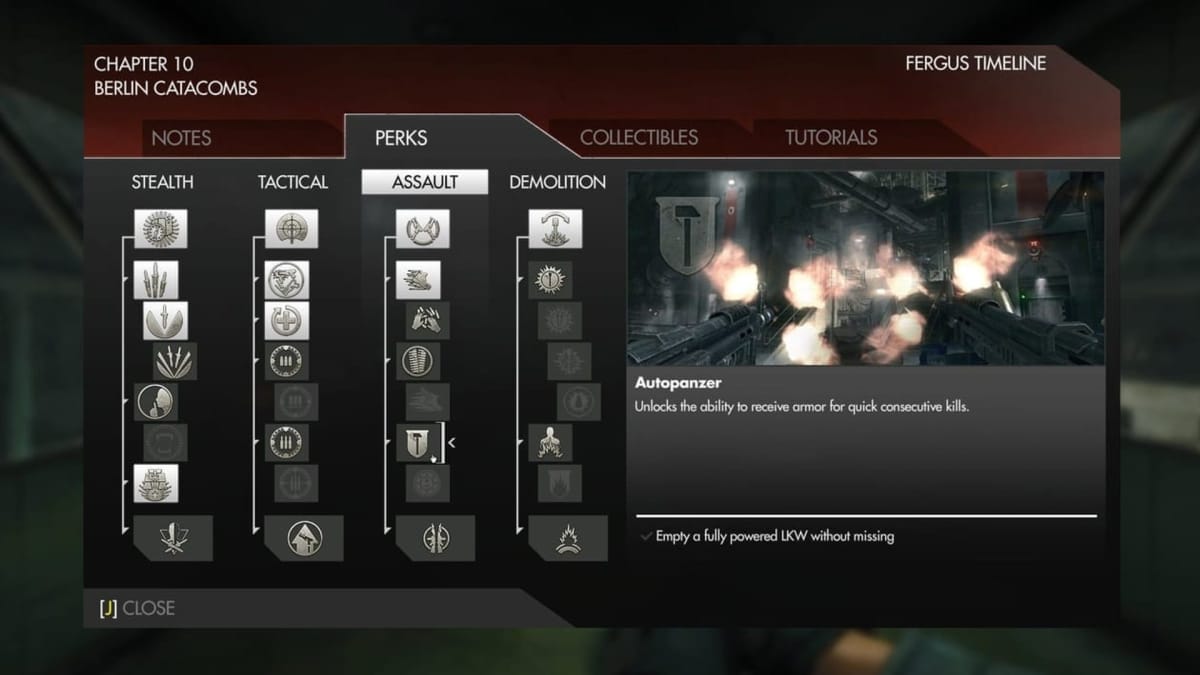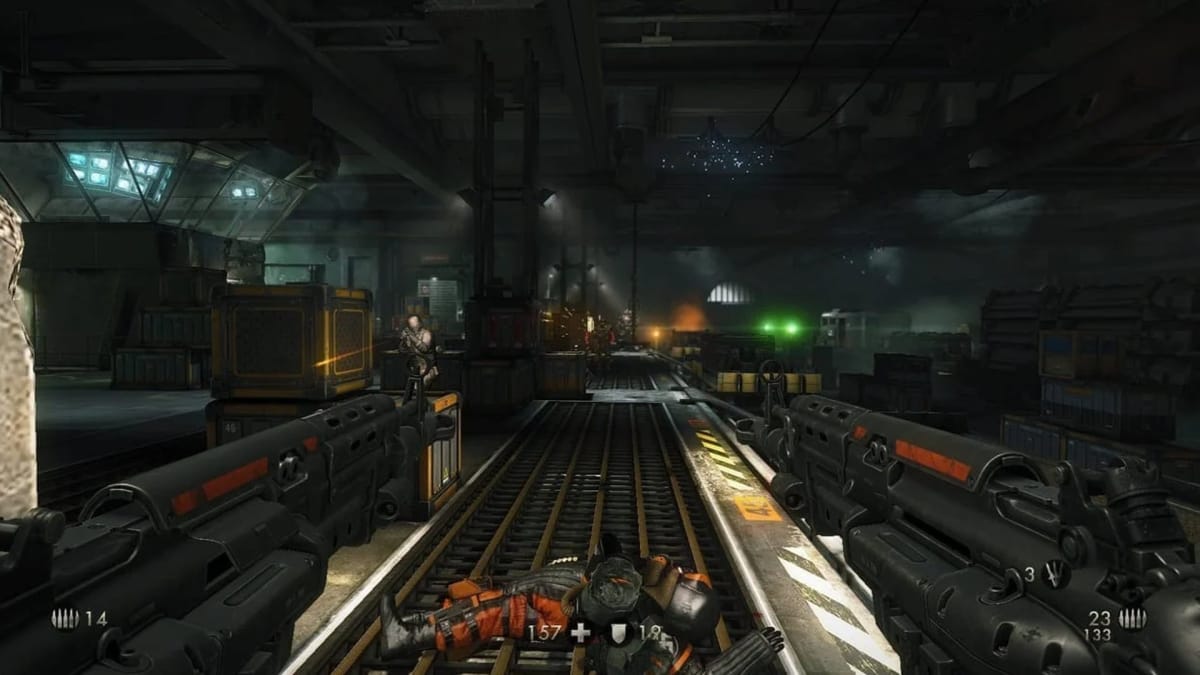Progression is one of the most difficult topics when it comes to building a game. When you make a game, you want to make the player feel like what they are doing has an impact, give the perception that they're doing well, and that they're getting better at the game. You do that by giving the player access to new features the more they delve into the experience. Wolfenstein: The New Order excels in making this process feel natural and unintrusive.
It used to be easier though. When videogames were a new media, everything was novelty and just reaching a new area was something to be proud of. When gaming started evolving as a media, the gamers' expectations and tastes started to change as well. Game design had to keep track with the new environment as well.
Talking of first-person shooters in particular, in ye old times you just had to give the player a new weapon once in a while to keep him interested in continuing. That's not enough anymore. Developers had to find new ways to give the player that sense of progress. Some went the way of borrowing from the game genre where progress is everything it's about: RPGs.

Problem is, when first-person shooters started to integrate experience bars and abilities unlocked by spending points, that sense of pure action that was so prominent in old school shooters started to wind down.
That's why there's a lot to appreciate in how Wolfenstein: The New Order decided to tackle the problem. The way this Nazi killing simulator managed to integrate a perk system in the game without spoiling the old school shooter vibe is something to commend.
There are 4 "perk trees" in Wolfenstein: The New Order. Each one of these is related to a specific way of playing the game. Nothing new so far, right?
The interesting thing is not the what, but the how. To unlock perks in Wolfenstein: The New Order you don't spend points. You don't get experience and don't choose a class. You don't tie yourself to a specific way to play the game for the whole campaign. You unlock perks in the most FPS thing imaginable.
By taking action.
Every perk in every perk tree is unlocked by completing a specific objective. It can be something like "get X headshots with a sniper rifle" or "kill X enemies during a slide while dual-wielding assault rifles." The good thing about most of these objectives is that it's something you're probably doing anyway. The way these perks are structured also tie very nicely with the tree they are on. This means that if you're the kind of person that likes to sneak around and backstab enemies from the shadow, you're probably going to unlock all the perks in the Stealth tree without even knowing it.
This is the amazing thing about this system. It does not force you in a specific way of playing the game, but rewards you for playing it the way you prefer by giving you the means to keep doing that, but better.

The perks themselves are also balanced. None of the perks, even the ones down in the skill tree, are game changing. Some unlock new abilities (like the ability to heal when you backstab), but even those don't revolutionize your playthrough. Unlocking a perk gives you a way to kill Nazis more efficiently in whatever way you choose. Perks are the cherry on top of this particular sundae. They're not going to make you an indestructible killing machine, but they'll make you realize you are becoming one with your own efforts.
What Wolfenstein: The New Order got right about this system is that the perks feel like a reward for getting good at the game rather than being something you need to be good at it. At the end of the day this is what progression is all about.
This post was originally published in 2016 as part of our Bullet Points series. It's been republished to have better formatting and images.
Have a tip, or want to point out something we missed? Leave a Comment or e-mail us at tips@techraptor.net










